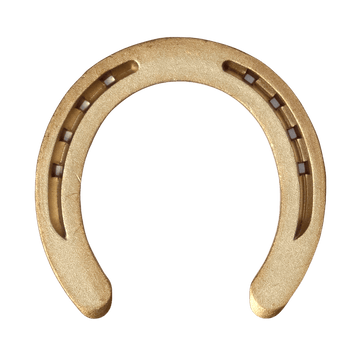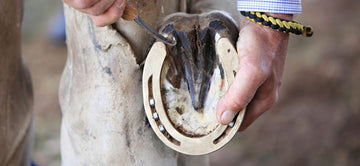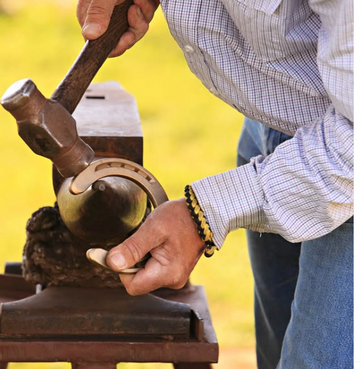Need help with dog care for dogs? This guide explains essential tips on nutrition, exercise, grooming, dental health, and safety to keep your dog healthy and happy.
Key Takeaways
-
Proper nutrition is essential for a dog’s health, requiring a balanced diet of proteins, fats, carbohydrates, vitamins, and minerals.
-
Regular exercise is crucial for maintaining physical and mental well-being in dogs, preventing obesity and promoting socialization.
-
Routine veterinary visits and thorough dental care are vital for your dog’s long-term health, allowing for early detection of health issues.

Proper Nutrition for a Healthy Life
A well-balanced diet is the cornerstone of a dog’s health. A healthy diet for your dog must include essential nutrients like:
-
Proteins
-
Fats
-
Carbohydrates
-
Vitamins
-
Minerals
Proteins are particularly important, with adult dogs needing at least 18% protein in their diet, while growing dogs require 22%. These proteins support muscle growth and repair, ensuring your adult dog remains strong and energetic.
Fats are vital for energy and the absorption of fat-soluble vitamins. Including omega fatty acids can also promote a healthier fur coat. On the other hand, vitamins and minerals are essential for various bodily functions, from immune support to bone development.
High-quality dog food maintains your dog’s coat and overall health. Poor nutrition can lead to a dull, matted coat, which is why investing in premium dog food and water dishes is worthwhile. Fresh water should always be available, as it is crucial for digestion and temperature regulation.
If you prefer homemade diets, consult a veterinary nutritionist to meet all nutritional requirements. This ensures a balanced diet that supports your dog’s health and well-being.
Regular Exercise for Physical Activity
Exercise is essential for both the physical and mental well-being of a dog healthy. Regular physical activity helps combat obesity, reducing the risk of serious health issues like diabetes and joint problems. Daily walks benefit both dogs and their owners, offering socialization and bonding opportunities.
Various exercise activities can cater to different dogs based on their age, health, and dog’s breed. Active breeds typically require more vigorous activities like jogging, on-leash hiking, swimming, or running alongside a bike. On the other hand, less active or senior dogs may be content with shorter, leisurely walks. Incorporating training into these activities, such as asking your dog to sit before meals or wait before crossing a road, helps exercise both body and mind.
Consistency is crucial in maintaining your dog’s fitness. A regular exercise routine is more beneficial than sporadic, intense workouts. Local parks offer excellent spaces for daily walks and play sessions, ensuring your dog gets the physical activity and mental stimulation they need.

Grooming Tips for a Shiny Hair Coat
Grooming does more than improve your dog’s appearance—it supports their overall health. Brushing regularly helps prevent tangles and matting, especially in breeds with thick undercoats or long fur. Even short-haired dogs benefit from weekly brushing to keep their coat smooth and healthy.
To avoid stripping your dog’s natural oils, limit baths to once or twice a month. Overbathing can lead to dryness and irritation. For dogs with skin issues, fleas, or ticks, more frequent baths using a gentle product like Kawell USA’s Matico Natural Healing Shampoo may be needed.
Using the right tools makes a big difference. Electric clippers help manage mats, while regular grooming prevents skin problems in shaggy-coated dogs. Adding Matico Natural Pet Spray can further support coat shine, reduce irritation, and keep your dog comfortable.
Dental Care to Prevent Periodontal Disease
Dental care, often overlooked, is crucial for your dog’s overall health. Regular tooth brushing can prevent costly dental treatments and serious health issues. Ideally, you should brush your dog’s teeth daily or at least three times a week to maintain optimal dental health.
Use toothpaste specifically made for dogs, as human toothpaste can be harmful. Regular dental cleanings and check-ups can also help avoid severe oral health issues and keep your dog’s breath fresh. Plaque can harden into tartar within days, which is only removable during professional cleanings.
Starting dental care early, ideally at eight weeks old, can make the process more comfortable for your dog. With a little time and training, teeth brushing can become an enjoyable activity for your dog, contributing significantly to their overall health.
Creating a Safe Environment
A safe environment is a cornerstone of responsible dog parent pet parenting for other pet parents. Ensure that all hazardous items, such as cleaning supplies and medications, are removed from areas accessible to your dog. This simple step can prevent accidents and health issues for a pet parent.
A cozy bed, toys, and a water bowl in a secure, quiet area create a safe space for your dog to rest. Incorporating calming elements, such as white noise machines or soothing music, can further enhance this safe environment.
Cleaning the living space and keeping it free from harmful debris and toxins is crucial.
Mental Stimulation and Interactive Games
Mental stimulation is just as important as physical activity in keeping your dog happy and healthy. Mental challenges for your dog can prevent boredom and anxiety. Interactive toys that reward dogs with treats can enhance their problem-solving abilities, making playtime both fun and beneficial.
Puzzle feeders can transform mealtime into a stimulating activity, promoting engagement and slowing cognitive decline in older dogs. Games like hide-and-seek and training new tricks are excellent mental exercises, tapping into your dog’s natural instincts and strengthening your bond.

Regular Veterinary Visits for Overall Health
Veterinary visits are essential for monitoring your dog’s health and well-being. These check-ups help build a relationship between you and your veterinarian, facilitating personalized care. Regular veterinary check-ups can identify health issues early, enhancing treatment effectiveness and improving outcomes.
During these visits, veterinarians can track your dog’s growth and health changes, allowing for timely interventions. Routine visits ensure your pet receives necessary vaccinations, safeguarding them from serious diseases. Physical examinations check for abnormalities in various health aspects, contributing to your dog’s overall health.
For senior dogs, veterinary visits are recommended at least twice a year due to increased health risks. The frequency of these visits should be tailored based on your dog’s age, breed, and health status. Regular check-ups are crucial for keeping your dog happy and healthy throughout their life.
Protecting Your Dog from Parasites
Parasite prevention is vital for your dog’s health. Flea and tick prevention can be achieved through various approved treatments, helping to maintain your dog’s overall health. Common threats include fleas, ticks, and heartworms. Heartworm, transmitted primarily through mosquito bites, poses a serious health risk, potentially causing heart damage and early death.
Year-round heartworm prevention, including annual testing, is crucial. These preventive medications often cover both heartworm and intestinal parasites, ensuring comprehensive protection. Consult a veterinarian for prescription treatments if over-the-counter flea and tick options are ineffective.
Sanitation is key in preventing roundworm infections, so clean up feces promptly. By following these guidelines, you can keep your furry friend safe from harmful parasites.
Socialization and Positive Behavior Training
Socialization and positive behavior dog training are crucial for developing well-adjusted dogs. Early socialization practices significantly contribute to the development of emotionally stable adult dogs, reducing the likelihood of unwanted behaviors. Properly socialized dogs are more likely to engage positively with humans and other animals, facilitating better social interactions.
Owner involvement ensures socialization continues past puppyhood. Exposing your canine companion to a variety of experiences helps them become confident and adaptable. Positive reinforcement training techniques reinforce desired behaviors and build a strong bond with your dog.
Consistent training prevents confusion and ensures adherence to house rules, making for a harmonious household. Participating in puppy socialization classes can lead to better adult behavior, although the effectiveness may vary depending on class quality.
Seasonal Care Tips
Seasonal changes bring specific challenges for dog care. In hot weather, car temperatures can exceed 100 degrees in just 20 minutes. Excessive panting is a sign to bring your dog inside immediately to prevent heat stroke. Choosing grass, dirt, or shaded paths for walks can prevent your dog’s paw pads from burning on hot surfaces. Providing shade and a kiddie pool filled with water or ice can help your dog cool down.
In cold weather, monitor your dog’s exposure to prevent frostbite. Bring your dog inside when you start to feel chilled to ensure their comfort. Wearing a sweater or coat can help dogs that are particularly sensitive to cold weather remain warm.
Consider using dog booties to shield your pet’s paws from cold, snow, and harmful de-icing chemicals. Wiping your dog’s paws after outdoor walks removes harmful de-icing chemicals. Using a paw balm or petroleum jelly can create a protective barrier on your dog’s paws against the cold.
Identification and Safety Measures
Identification and safety measures are crucial for responsible pet parenting. Microchipping is the most permanent way to ensure your pet can be identified if lost. Veterinary clinics provide microchipping services, and it’s essential to verify that microchip information is kept up to date. ID tags should include the owner’s current contact details, the dog’s name, and the owner’s phone number.
Safe travel practices are also essential. A seat belt attachment or secured crate/carrier ensures your dog’s safety during vehicle trips. These dog safe measures help prevent accidents and ensure your dog’s well-being.
Summary
Caring for a dog involves more than just feeding and walking them. It’s about ensuring their physical, mental, and emotional well-being. From providing proper nutrition and regular exercise to grooming and dental care, each aspect plays a vital role in your dog’s life.
Creating a safe environment, offering mental stimulation, and ensuring regular veterinary visits are just as important. Protecting your dog from parasites and focusing on socialization and positive behavior training further enhance their quality of life.
As a responsible pet parent, implementing these tips can make a significant difference. Your commitment to following these guidelines will ensure your furry friend leads a happy, healthy, and fulfilling life. Remember, a well-cared-for dog is a happy dog, and the bond you share will only grow stronger with time.
Frequently Asked Questions
How often should I brush my dog's teeth?
For optimal dental health and to prevent periodontal disease, you should ideally brush your dog's teeth daily or at least three times a week.
What type of exercise is best for my dog?
The best exercise for your dog is a combination of daily walks and engaging activities like fetch, jogging, or swimming, tailored to your dog's age, breed, and health. This approach ensures that your dog stays physically fit and mentally stimulated.
How can I ensure my dog is getting a balanced diet?
To ensure your dog receives a balanced diet, provide high-quality dog food rich in essential nutrients and consider consulting a veterinary nutritionist, especially for homemade diets. This approach will promote your dog’s overall health and well-being.
What should I do if my dog has fleas or ticks?
If your dog has fleas or ticks, it's crucial to use approved treatments for prevention and rely on your veterinarian for prescription options if over-the-counter remedies fail. Prompt action is essential to protect your pet's health.
How can I keep my dog safe during car trips?
To keep your dog safe during car trips, use a seat belt attachment or a secured crate/carrier. This approach prevents accidents and ensures your dog's well-being.










